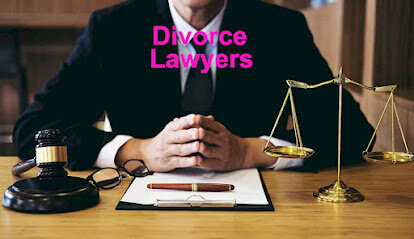Best Landlord & Tenant Lawyers in New York
Share your needs with us, get contacted by law firms.
Free. Takes 2 min.
Free Guide to Hiring a Real Estate Lawyer
Or refine your search by selecting a city:
List of the best lawyers in New York, United States
United States Landlord & Tenant Legal Questions answered by Lawyers
Browse our 2 legal questions about Landlord & Tenant in United States and read the lawyer answers, or ask your own questions for free.
- What is owner of condo units obligation as far as damage to the condo below their unit.
- The unit above my condo is managed by a Property Management company, and it was rented. During the time it was rented, there were water leaks that damaged my ceilings, and the Management Company. refuses to fix the ceiling so that it matches the rest of the ceiling. Even though... Read more →
-
Lawyer answer by Horus Legal Sulotion
Thank you for sharing the details of your situation. Based on the circumstances you described, you may have grounds to escalate the matter legally. You can file a case to request the appointment of a government engineer from Dubai Municipality...
Read full answer - How to protect property from squatters law
- Deed in my mom's name. She died 18 years ago. Son is named as administrator but not as owner. We live in USA so let Non relative live there for 45-50 year but had no formal contract. Let him live there free as long as he paid utilities and taxes.... Read more →
-
Lawyer answer by M BILAL ADVOCATES, CORPORATE & TAX CONSULTANTS
After completing probate to establish yourself as the legal heir, you can transfer the property title to your name and then grant them permission to reside there through a formal agreement. It is worthy to note that you can do...
Read full answer
About Landlord & Tenant Law in New York, United States
Landlord and tenant law governs the relationship between property owners and renters. In New York, these laws are designed to balance the rights, obligations, and protections of both landlords and tenants. The rules cover a range of issues including lease agreements, security deposits, rent regulations, eviction processes, and maintenance requirements. Understanding these laws is essential whether you are renting an apartment in New York City, upstate, or another part of the state, as there are important differences and tenant protections in various regions.
Why You May Need a Lawyer
Legal issues can arise for both landlords and tenants that require professional assistance. Tenants may face challenges such as eviction notices, disputes over security deposits, uninhabitable living conditions, or violations of rent-stabilization laws. Landlords may need help with tenant disputes, lease violations, nonpayment of rent, or navigating the eviction process. Having a lawyer can be especially helpful for interpreting complex regulations, negotiating with the opposing party, or representing you in court or administrative hearings.
Local Laws Overview
New York has extensive laws regulating the rental housing market. In New York City, rent stabilization and rent control laws affect many apartments, limiting the amount landlords can charge and dictating allowable rent increases. Across the state, the New York State Housing Stability and Tenant Protection Act of 2019 introduced several tenant protection measures, including longer notice periods for rent increases and evictions, limits on security deposits, and restrictions on application fees.
Landlords must maintain safe and habitable premises, respond to emergency repairs, and cannot retaliate against tenants for exercising their rights. Tenants are required to pay rent on time, avoid damaging the property, and follow the terms of their lease. Both parties must adhere to the exact process for ending a tenancy, whether through mutual agreement, non-renewal, or eviction.
Frequently Asked Questions
What is the difference between rent control and rent stabilization?
Rent control is a program that limits how much rent can be charged for certain apartments occupied continuously since July 1, 1971, mostly in older buildings. Rent stabilization applies to more apartments in New York City and nearby areas, setting limits on rent increases and protecting against eviction without cause.
How much can a landlord charge for a security deposit?
In New York State, the maximum security deposit a landlord can require is limited to one month's rent. Landlords must return the security deposit within 14 days after a tenant moves out, with an itemized list of any deductions.
What notice must a landlord give before raising rent?
For tenants who have lived in their unit for less than a year or have a lease of less than one year, 30 days' notice is required. For leases or tenancies between one and two years, 60 days' notice is needed. For two years or more, 90 days' notice is required.
How do I handle a dispute over repairs or uninhabitable conditions?
Tenants should first notify their landlord in writing about any repair needs. If the landlord does not respond, tenants may file a complaint with local housing agencies, or consider legal action for breach of the warranty of habitability. In some cases, tenants may be permitted to withhold rent, but legal guidance is recommended before doing so.
What is the legal process for eviction in New York?
A landlord must first provide a written notice and, if necessary, file a petition in Housing Court. Only a judge can order an eviction, and self-help methods such as changing locks are illegal. Tenants have the right to present their case and may only be evicted with a court order.
Can a landlord enter my apartment without my permission?
Landlords must generally provide reasonable notice (usually 24 hours) before entering an occupied rental unit, except in emergencies. Entry without notice outside emergencies may violate your privacy rights.
Are there limits on late fees for rent?
Yes, under state law, late fees for rent cannot exceed 5 percent of the monthly rent or $50, whichever is less. Late fees can only be charged if rent is more than five days late.
What should I do if I receive an eviction notice?
Do not ignore the notice. Review the paperwork carefully and attend any scheduled court hearings. Consider contacting a legal services organization or attorney for advice or representation.
How are lease renewals handled?
Tenants in rent-stabilized apartments generally have the right to a lease renewal for one or two years at a regulated rent increase. In non-regulated units, landlords are not required to renew a lease unless otherwise agreed, but must provide appropriate notice if they do not intend to renew.
What rights do tenants have regarding security deposit returns?
Upon moving out, tenants are entitled to receive their security deposit back within 14 days, less any lawful deductions for damage beyond normal wear and tear. Landlords must provide a written statement itemizing damages and deductions.
Additional Resources
- New York State Division of Housing and Community Renewal (DHCR): Administers rent regulations and provides information for tenants and landlords.
- New York City Housing Court: Information on court procedures and self-help services related to landlord-tenant disputes.
- Legal Aid Society: Offers free or low-cost legal services for eligible tenants facing eviction or other housing issues.
- New York Attorney General’s Office: Publishes a Tenant’s Rights Guide and offers tips for both landlords and tenants.
- Local bar associations: Many offer lawyer referral services for landlord and tenant matters.
Next Steps
If you are experiencing a landlord and tenant issue or need legal guidance, gather all relevant documents such as your lease agreement, correspondence, and any notices or court papers. Reach out to reputable legal aid organizations, housing advocacy groups, or consult with a private attorney who specializes in landlord-tenant law in your area. Do not wait to seek help, especially if you have been served with an eviction notice or court papers, as strict deadlines usually apply. Taking prompt action will help protect your rights and may improve the outcome of your case.
Lawzana helps you find the best lawyers and law firms in New York through a curated and pre-screened list of qualified legal professionals. Our platform offers rankings and detailed profiles of attorneys and law firms, allowing you to compare based on practice areas, including Landlord & Tenant, experience, and client feedback.
Each profile includes a description of the firm's areas of practice, client reviews, team members and partners, year of establishment, spoken languages, office locations, contact information, social media presence, and any published articles or resources. Most firms on our platform speak English and are experienced in both local and international legal matters.
Get a quote from top-rated law firms in New York, United States — quickly, securely, and without unnecessary hassle.
Disclaimer:
The information provided on this page is for general informational purposes only and does not constitute legal advice. While we strive to ensure the accuracy and relevance of the content, legal information may change over time, and interpretations of the law can vary. You should always consult with a qualified legal professional for advice specific to your situation.
We disclaim all liability for actions taken or not taken based on the content of this page. If you believe any information is incorrect or outdated, please contact us, and we will review and update it where appropriate.
Browse landlord & tenant law firms by city in New York
Refine your search by selecting a city.















